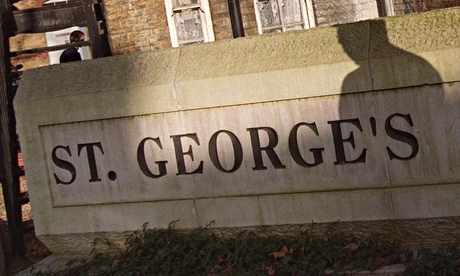
A woman who had recently travelled to west Africa has tested negative for Ebola at a south London hospital, it has been confirmed.
The arrival of the unwell woman at St George’s hospital on Sunday night triggered protocols put in place to guard staff and fellow patients against the contagious disease. She was treated by staff wearing full protective body suits, including masks and gloves, and moved to the clinical infections unit, where she had a series of tests, one of which was for Ebola.
The woman will stay at St George’s to receive treatment, the hospital said. It did not disclose the diagnosis of her illness.
“All appropriate actions have been taken by our staff to protect the public and the patient,” said a statement from the St George’s Healthcare NHS Trust.
There have been false alarms elsewhere in the country. Last month, Ebola safety procedures were triggered at Southmead hospital in Bristol when Adam Griffiths, 24, who had been travelling in Africa arrived in accident and emergency, suffering from chest and abdominal pains and feeling hot and sweaty. Griffiths was met by doctors wearing protective suits and put in isolation while blood tests were carried out, but they proved negative.
Protocols laid down by Public Health England (PHE) say that all NHS staff should know of the risk of Ebola in patients with a fever returning from west Africa. All hospitals and GP surgeries have personal protective equipment – full body suits, masks and gloves – and staff should know where they are kept and how to use them.
A PHE spokesman said: “It is important to remember that as yet, there has not been a case of Ebola diagnosed in the UK and the infection can only be transmitted through contact with the body fluids, such as blood, vomit or faeces, of an infected person. We have advised all frontline medical practitioners and NHS call handlers to be alert to signs and symptoms of Ebola in those returning from affected areas, and following such advice we would expect to see an increase in testing.”
PHE would not confirm how many people have been tested for the virus in the UK since the outbreak in west Africa.
William Pooley became the first confirmed Briton to contract Ebola and was flown back to the UK in August, where he was treated at the Royal Free hospital in London.
The 29-year-old has returned to Sierra Leone, where he caught the infection, to begin his second spell treating people infected by the virus.
